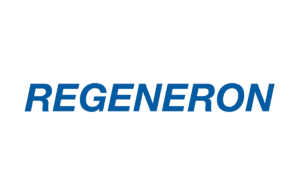 The FDA granted approval to Inmazep, a mixture of three monoclonal antibodies, making it the first FDA-approved treatment for Ebola virus.
The FDA granted approval to Inmazep, a mixture of three monoclonal antibodies, making it the first FDA-approved treatment for Ebola virus.
Regeneron Pharmaceuticals (NSDQ:REGN) received the approval, having recently been in the news for providing its investigational COVID-19 therapeutic to President Donald Trump.
Inmazeb targets the glycoprotein that is on the surface of the Ebola virus. The glycoprotein attaches to the cell receptor and fuses the viral and host cell membranes, allowing the virus to enter the cell. The three antibodies that comprise Inmazeb (atoltivimab, maftivimab and odesivimab-ebgn) can bind to the glycoprotein and block attachment and entry of the virus, according to an FDA news release.
A total of 382 adult and pediatric patients with confirmed Ebola virus infection were observed in the PALM trial in the Democratic Republic of the Congo during a virus outbreak in 2018-2019. The U.S. National Institutes of Health and the DRC’s Institut National de Recherche Biomédicale led the trial, with participation from other international organizations and agencies.
The PALM trial randomized 154 patients to receive Inmazeb intravenously as a single infusion, while 168 patients received an investigational control. The primary efficacy endpoint was 28-day mortality. Of the 154 patients who received Inazeb, 33.8% died after 28 days, compared to 51% in the control.
Symptoms that aroze in patients who received Inmazeb included fever, chills, tachycardia (fast heart rate), tachypnea (fast breathing), and vomiting, although these are also symptoms of Ebola.
Inmazeb received an orphan drug designation for the treatment of Ebola to offer incentives to assist and encourage drug development for rare diseases. Additionally, the FDA granted the drug a breakthrough therapy designation.
“Today’s action demonstrates the FDA’s ongoing commitment to responding to public health threats—both domestically and abroad—on the basis of science and data,” FDA Commissioner Dr. Stephen Hahn said in the release. “This approval was made possible because of our steadfast dedication to facilitate the development of safe and effective treatments for infectious diseases as part of our vital public health mission.”
“Today’s approval highlights the importance of international collaboration in the fight against Ebola virus,” added Office of Infectious Diseases director Dr. John Farley. “The urgent need for advanced therapies to combat this infectious disease is clear, and today’s action is a significant step forward in that effort.”
Filed Under: clinical trials, Drug Discovery, Drug Discovery and Development, Infectious Disease, Orphan Drugs





Tell Us What You Think!
You must be logged in to post a comment.